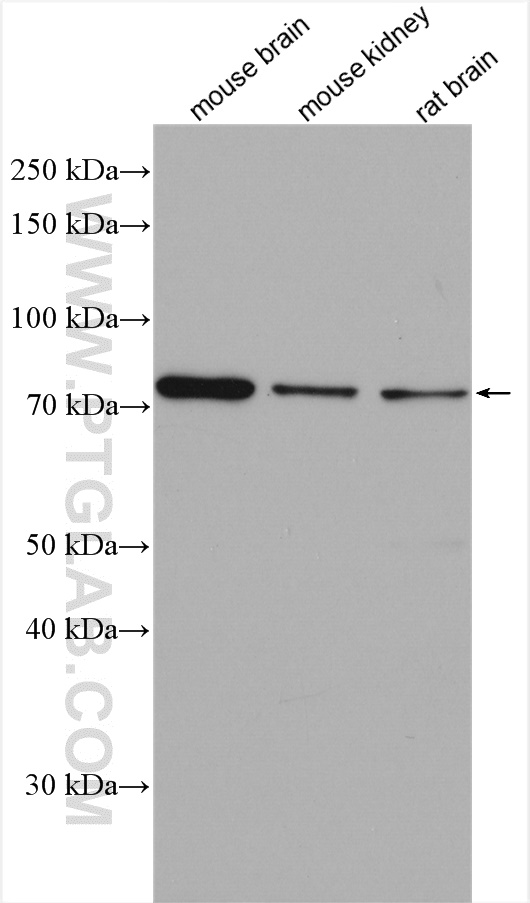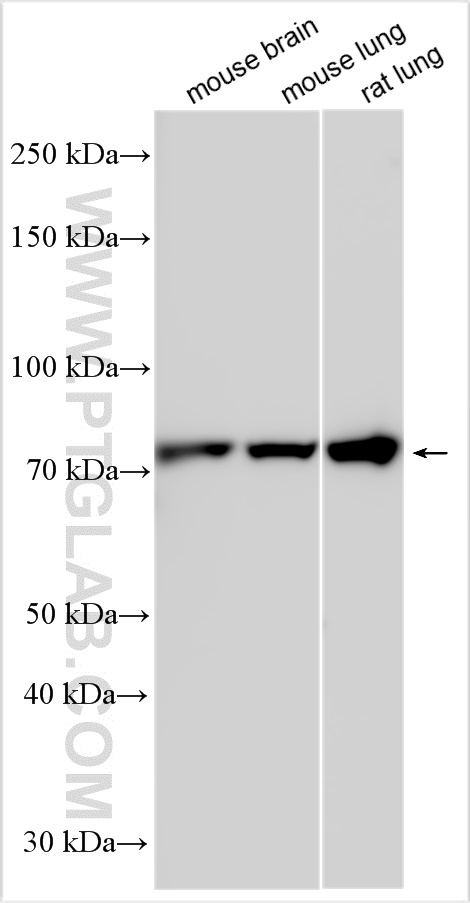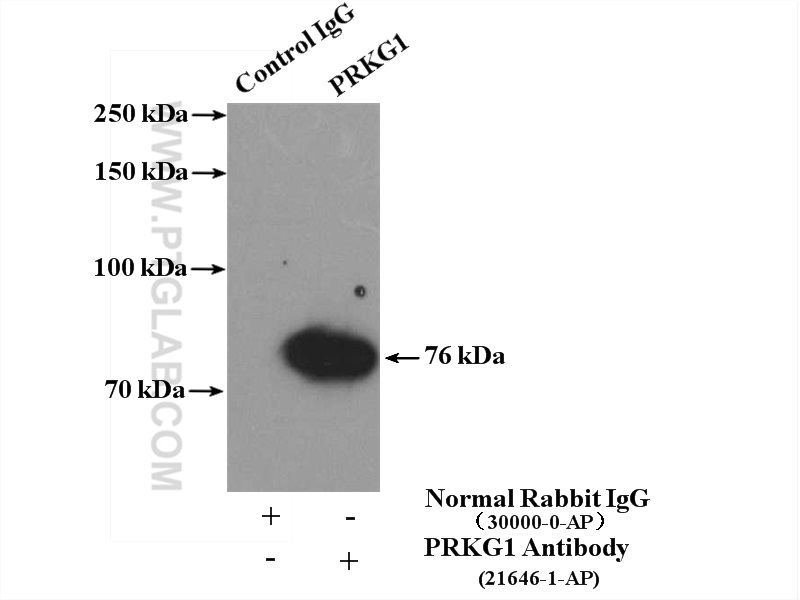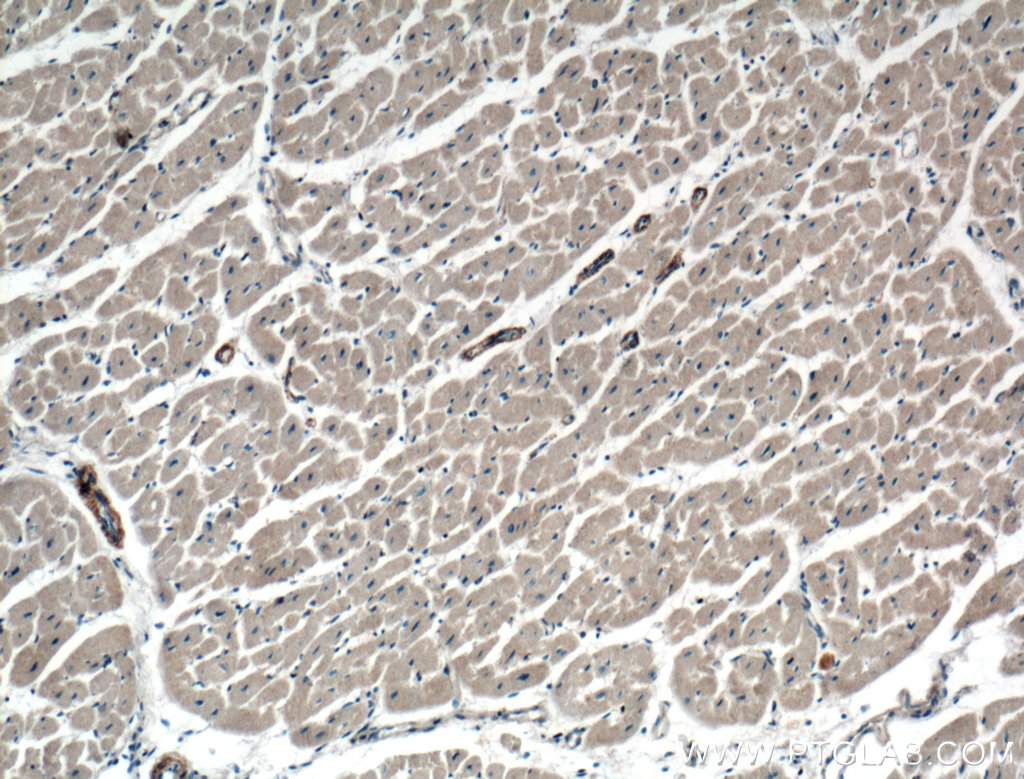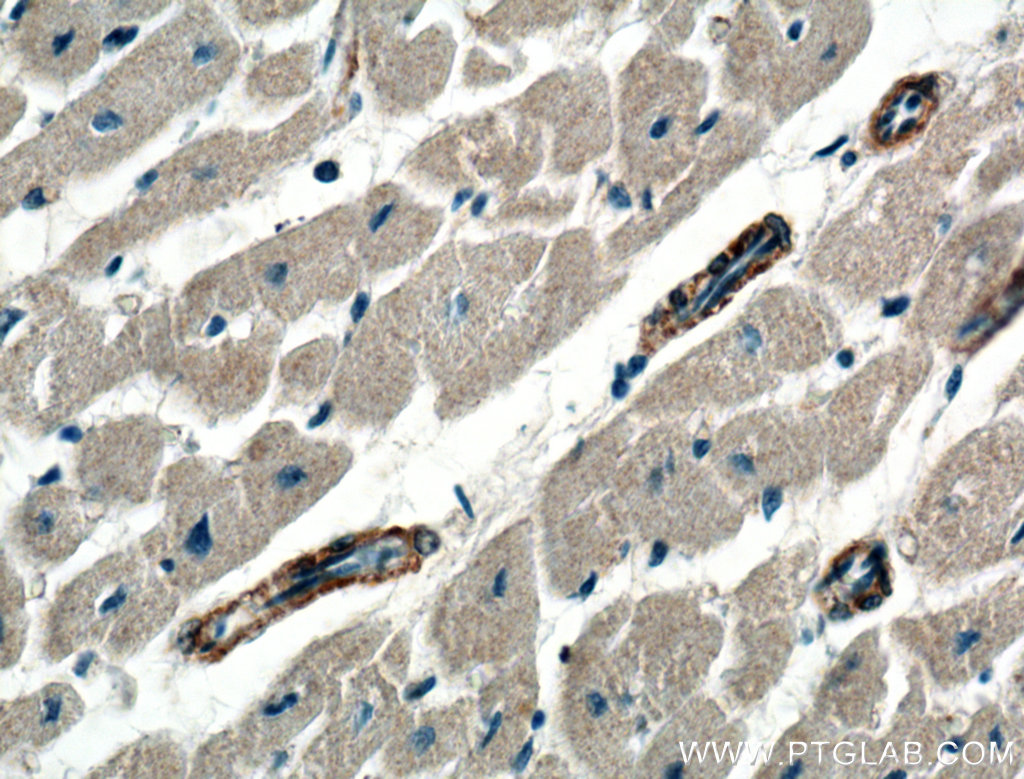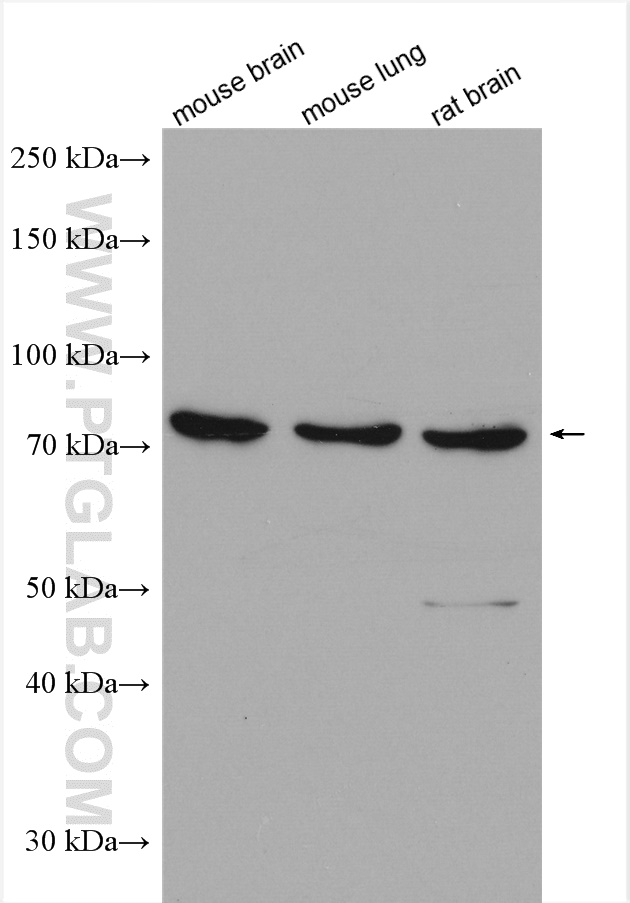验证数据展示
经过测试的应用
| Positive WB detected in | mouse brain tissue, mouse kidney tissue, rat brain tissue, mouse lung tissue, rat lung tissue |
| Positive IP detected in | mouse brain tissue |
| Positive IHC detected in | human heart tissue Note: suggested antigen retrieval with TE buffer pH 9.0; (*) Alternatively, antigen retrieval may be performed with citrate buffer pH 6.0 |
推荐稀释比
| 应用 | 推荐稀释比 |
|---|---|
| Western Blot (WB) | WB : 1:1000-1:3000 |
| Immunoprecipitation (IP) | IP : 0.5-4.0 ug for 1.0-3.0 mg of total protein lysate |
| Immunohistochemistry (IHC) | IHC : 1:50-1:500 |
| It is recommended that this reagent should be titrated in each testing system to obtain optimal results. | |
| Sample-dependent, Check data in validation data gallery. | |
产品信息
21646-1-AP targets PRKG1 in WB, IHC, IP, ELISA applications and shows reactivity with human, mouse, rat samples.
| 经测试应用 | WB, IHC, IP, ELISA Application Description |
| 文献引用应用 | WB, IHC |
| 经测试反应性 | human, mouse, rat |
| 文献引用反应性 | human, mouse, rat, bovine |
| 免疫原 | PRKG1 fusion protein Ag16333 种属同源性预测 |
| 宿主/亚型 | Rabbit / IgG |
| 抗体类别 | Polyclonal |
| 产品类型 | Antibody |
| 全称 | protein kinase, cGMP-dependent, type I |
| 别名 | CGKI, cGK1, PRKG1B, EC:2.7.11.12, cGMP-dependent protein kinase I |
| 计算分子量 | 686 aa, 78 kDa |
| 观测分子量 | 65-78 kDa |
| GenBank蛋白编号 | BC127090 |
| 基因名称 | PRKG1 |
| Gene ID (NCBI) | 5592 |
| RRID | AB_2878897 |
| 偶联类型 | Unconjugated |
| 形式 | Liquid |
| 纯化方式 | Antigen affinity purification |
| UNIPROT ID | Q13976 |
| 储存缓冲液 | PBS with 0.02% sodium azide and 50% glycerol , pH 7.3 |
| 储存条件 | Store at -20°C. Stable for one year after shipment. Aliquoting is unnecessary for -20oC storage. |
背景介绍
PRKG1(cGMP-dependent protein kinase 1) is also named as cGK1, PRKG1B, PRKGR1A, PRKGR1B and belongs to the cGMP subfamily. It serves as an integral component of second messenger signaling in a number of biological contexts including cell differentiation, memory, and vasodilation(PMID:21893290). Its activity prevents pathological-level nitric oxide-induced apoptosis and promotes DNA synthesis/cell proliferation in vascular smooth muscle cells(PMID:20060325). PRKG1 has 2 isoforms produced by alternative splicing with the molecular weight of 76 kDa and 78 kDa. The autophosphorylation can increase the kinase activity and it can form a monomer with the molecular weight of 65 kDa that is produced by proteolytic cleavage. SDS-PAGE revealed that proteolysis generated two different monomers with molecular masses of 70 and 68 kDa of CGK1-beta(PMID:8702828).
实验方案
| Product Specific Protocols | |
|---|---|
| WB protocol for PRKG1 antibody 21646-1-AP | Download protocol |
| IHC protocol for PRKG1 antibody 21646-1-AP | Download protocol |
| IP protocol for PRKG1 antibody 21646-1-AP | Download protocol |
| Standard Protocols | |
|---|---|
| Click here to view our Standard Protocols |
发表文章
| Species | Application | Title |
|---|---|---|
Environ Pollut Fluoride-induced unrestored arrest during haploid period of spermatogenesis via the regulation of DDX25 in rats. | ||
Clin Sci (Lond) Empagliflozin prevents cardiomyopathy via sGC-cGMP-PKG pathway in type 2 diabetes mice. | ||
Front Cell Dev Biol Myostatin Mutation Promotes Glycolysis by Increasing Phosphorylation of Phosphofructokinase via Activation of PDE5A-cGMP-PKG in Cattle Heart.
| ||
Front Pharmacol Emodin Interferes With Nitroglycerin-Induced Migraine in Rats Through CGMP-PKG Pathway. | ||
Cancer Cell Int NEK7 promotes gastric cancer progression as a cell proliferation regulator. | ||
Mol Cell Endocrinol EDNRB negatively regulates glycolysis to exhibit anti-tumor functions in prostate cancer by cGMP/PKG pathway |
